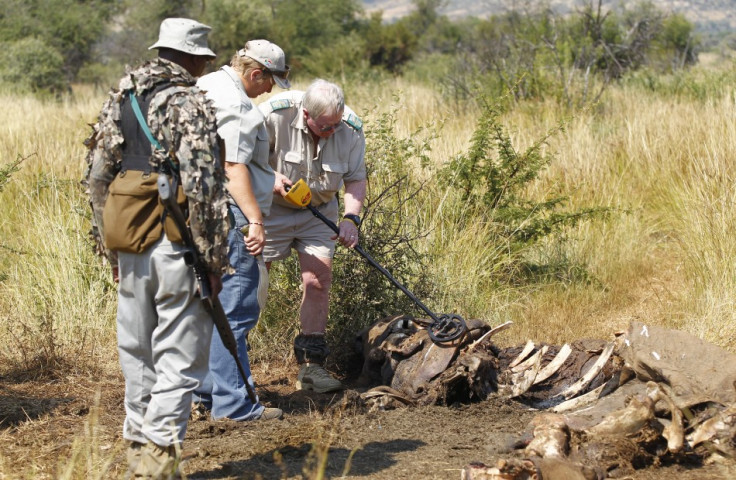Kruger Park Rhino Poaching Wars: Policeman and Ranger Shot Dead after Radio Breakdown
Communication breakdown emerges as prime theory for deaths of two in anti-poaching operation in South Africa's premier game reserve.

A broken radio could have indirectly caused the deaths of a policeman and a ranger in South Africa's Kruger Park game reserve.
The policeman and a soldier were searching for suspected rhino poachers in the park when the police officer was shot dead by a game ranger.
One theory is that the ranger could not confirm the identity of the officer because he could not see them clearly and his walkie-takie was not working. He shot tthe officer because he believed he was a poacher. Another theory is that the ranger was working with the poachers.
"They had just received information that there may be potential poachers in the area," said Col Vishnu Naidoo, a police spokesman. "They had taken off from their observation point when they came under fire."
After the officer was hit, the soldier returned fire and killed the ranger.
It emerged that the ranger's walkie-talkie was not working so the policeman had not been able to contact him to alert him that they were not poachers.
"They were on official duty - we do not have any reason to believe that anyone was doing anything wrong," William Mabasa, Kruger Park spokesman, said. "It happened in a thickly bushed area so it is difficult to say exactly what happened."
Naidoo rejected claims that the ranger had been in cahoots with the poachers, as is frequently the case. An investigation has been launched.
Since the beginning of 2012, 111 rhinos have been killed in the park, according to the environmental department. South Africa's grip on the fight against rhino poaching appears to be failing with a record 448 rhinos killed last year - up 34 percent on 2010.
WWF has linked the recent surge in rhino poaching to increased demand for rhino horn in Asia. Vietnam, in particular, uses the horns as a detoxifier and as a cure for cancer.
The Kruger is South Africa's largest park and its most visited with about a million tourists per year.
© Copyright IBTimes 2025. All rights reserved.






















